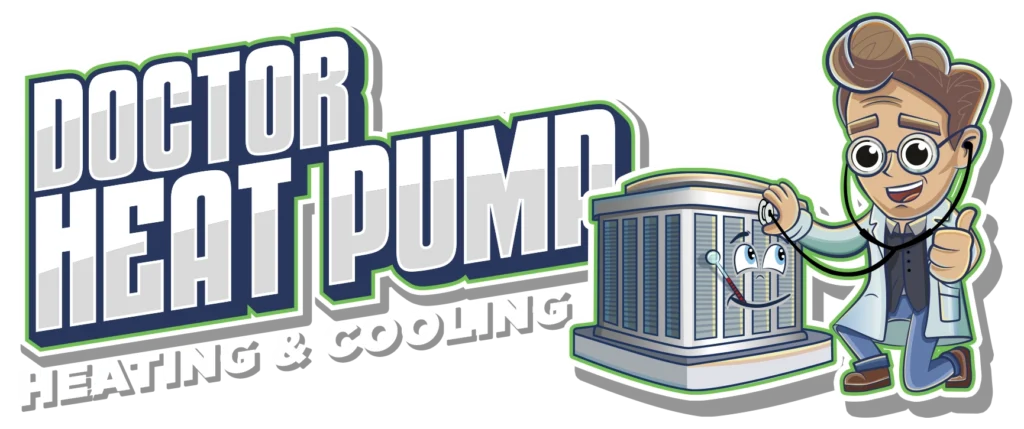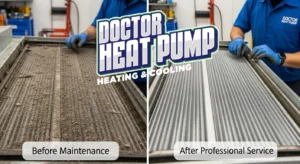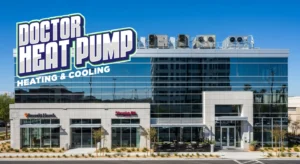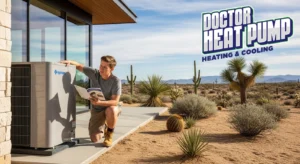Thinking about a heat pump install for your home? In places like Las Vegas, where summers are blazing and winters are mild, a heat pump can be an efficient year-round solution. But what does installation involve, and is it worth the investment? Let’s break it all down.
What is a Heat Pump and How Does It Work?
Before we dive into costs and benefits, it helps to understand how heat pumps function.
Heat Pumps vs. Traditional HVAC Systems
Unlike a traditional AC and furnace combo, a heat pump pulls double duty. It cools your home in the summer and provides heat in the winter by transferring warm air in or out of your home, depending on the season.
Why Heat Pumps Work Well in Desert Climates
Heat pumps are perfect for places like Las Vegas, where winters are mild. Since they don’t rely on gas to generate heat, they can be more energy-efficient than traditional heating methods in desert environments.
How Much Does a Heat Pump Install Cost?
One of the biggest questions homeowners have is cost.
Cost Breakdown
The cost of a heat pump install varies widely based on factors like the type of system, home size, and existing ductwork. Here’s a rough price range:
| System Type | Estimated Cost (Including Installation) |
|---|---|
| Air Source Heat Pump | $4,000 – $12,000 |
| Ductless Mini-Split | $3,000 – $10,000 |
| Geothermal Heat Pump | $10,000 – $30,000 |
These prices depend on unit efficiency, labor costs, and any necessary home modifications.
Benefits of Installing a Heat Pump
Beyond cost, there are plenty of benefits to installing a heat pump in a desert climate.
Lower Energy Bills
Since heat pumps move heat instead of generating it, they consume less energy, especially in winter. Over time, this leads to lower utility bills.
Environmentally Friendly
Heat pumps reduce carbon emissions since they don’t rely on burning fossil fuels. If sustainability matters to you, a heat pump is a greener option.
Year-Round Comfort
No need for separate heating and cooling systems. A heat pump keeps you comfortable in every season without extra equipment.
Humidity Control
Las Vegas is known for dry air. Some heat pump models help regulate humidity, keeping indoor air from becoming too dry.
What to Expect During a Heat Pump Install
If you decide a heat pump is right for you, here’s what the installation process will look like:
Step 1: Home Assessment
An HVAC technician will assess your home’s size, insulation, and ductwork to determine the right heat pump for your needs.
Step 2: Choosing the Right System
Your technician will help you select the best type of heat pump for your budget and efficiency goals.
Step 3: Installation Day
The process can take anywhere from a few hours to a couple of days, depending on whether modifications are needed.
Step 4: Testing & Adjustments
Once installed, your HVAC technician will test the system to ensure it runs efficiently and answer any questions you have.
Adjusting to a Heat Pump
If you’ve been using a traditional AC and heating system, switching to a heat pump may take some getting used to. Here’s how to make the transition easier:
Set Realistic Expectations
Heat pumps work best with gradual temperature changes, so avoid cranking the thermostat up or down suddenly.
Optimize Your Home
Proper insulation and energy-efficient windows help maximize the performance of your new heat pump.
Regular Maintenance
Keep your system running smoothly with routine maintenance. Change filters, schedule professional tune-ups, and clear debris from outdoor units.
Heat Pump Install Conclusion
A heat pump install is a smart investment for Las Vegas homeowners looking for an energy-efficient, eco-friendly way to stay comfortable all year. While the upfront cost can vary, the long-term savings and benefits make it a worthwhile choice. And let’s be honest—installing a heat pump yourself sounds about as fun as trying to fix your own car engine. Let the professionals at Doctor Heat Pump handle it, and you’ll be relaxing in comfort in no time.
Ready to make the switch? Contact Doctor Heat Pump today!






